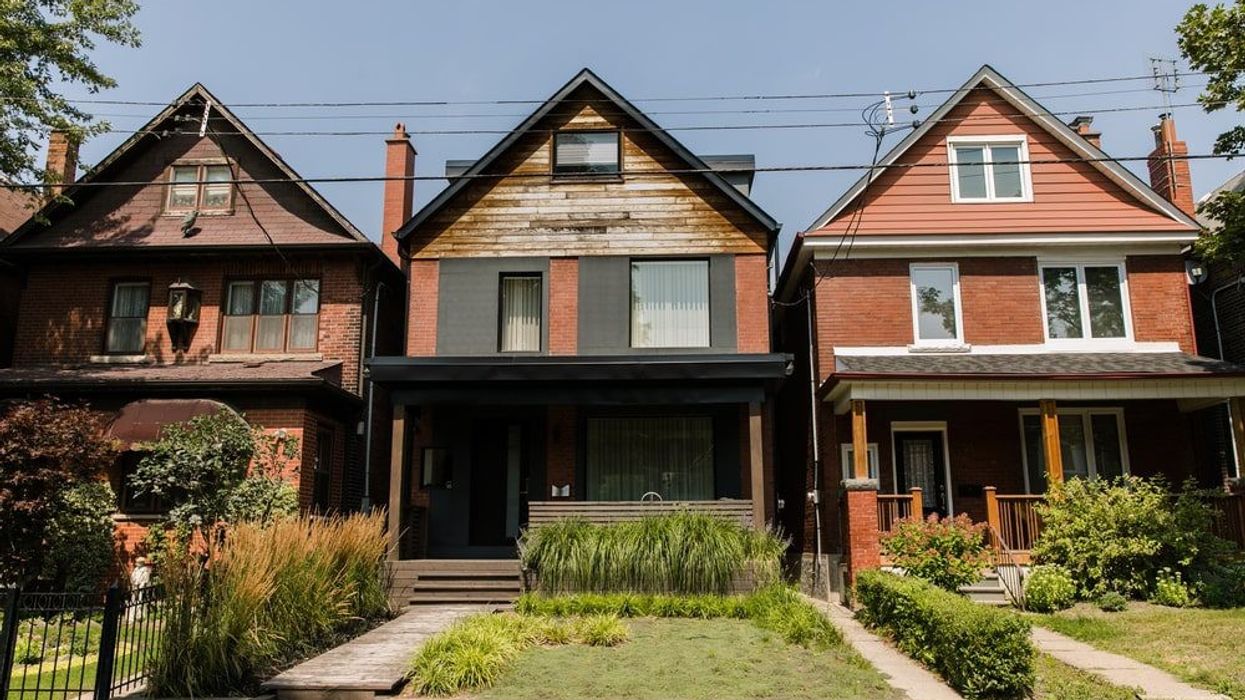A new report from Royal LePage shows that the Canadian real estate market has nearly recovered from 2022’s post-pandemic correction, while demand amongst homebuyers remains alive and well.
At $809,200, the aggregate price of a home was down just 0.7% annually in the second quarter of 2023. Still, home values remained strong on a quarterly basis, with aggregate pricing up 4% between the first and second quarters of the year.
The report notes that this is “the second consecutive quarter to show positive growth following a rapid decline in prices over the last year as a result of the Bank of Canada’s aggressive interest rate hike campaign,” which kicked off last March.
“We are close to that pivotal point where people who purchased at the peak would break even if they sold today,” Phil Soper, President and CEO of Royal LePage, said in a press release on Thursday.
That said, the tail end of Q2 saw the Bank of Canada (BoC) opt for a ninth hike to its benchmark policy rate, ending a months-long pause. Another hike this past Wednesday undercuts affordability even more, pushing many prospective sellers to “hit pause.”
“The worry that they will be unable to find the move-up home they need in today’s tight market is a major concern. Further, there are those who secured fixed-rate mortgages at generational lows of 2% or even less, who are understandably reluctant to wade back into a market with substantially higher borrowing costs,” said Soper.
As well, he continued, some homebuyers are on the sidelines "indefinitely.” However, Soper is careful to use the operative word “some.”
“Despite the central bank’s decision to start raising interest rates again, many buyers are still in the game. Demand remains strong, particularly among those who have secured a rate hold. Buyers who are determined to make a purchase this year have accepted the reality of higher initial carrying costs, rationally surmising that rates are at or near peak and will become more affordable before long.”
Prices To Appreciate Amid Low Inventory
Looking forward, Royal LePage forecasts that the aggregate home price in Canada will climb 8.5% year over year in the fourth quarter of 2023. That increase is higher than the real estate company previously forecasted, and is based on “strong activity and price appreciation in the first half of the year.”
“While these additional interest rate hikes will likely put a damper on activity and sales volumes, demand for housing remains very strong,” said Soper. “We expect the rate of appreciation to moderate through the second half of 2023, causing home prices to level off or increase marginally.”
Still, Soper urges Canadians to keep their expectations at bay with respect to what ‘moderating’ prices will actually look like.
“What people don’t understand is that home prices rise faster than the rate of inflation. If inflation is at 2% or 3% or 4%, home prices could be up 5% or 6%,” Soper tells STOREYS.
He also speaks to the fact that, although the bank’s overnight target rate currently sits at 5%, putting it at the highest level since April of 2001, price pressure in the housing market has much more to do with supply -- or lack thereof. Without new inventory being produced in a meaningful way, prices have nowhere to go but up.
In addition to stifled housing production across the country, tight demand-supply conditions will be compounded by would-be sellers retreating from the market and record-setting population growth due in part to lofty immigration targets.
As for monetary policy, Soper cautiously anticipates that the bank may now opt for another pause -- particularly given May’s inflation reading of 3.4%, which marked the lowest level in nearly two years.
“We have to give the economic medicine time to work,” says Soper, adding that monetary policy is “broader than just housing, although housing is a big part of it.” Once the BoC perceives that rates are having the desired effect on inflation and other important economic markers, Canadians can expect some rate relief.
However, Canadians could then be in store for skyrocketing home prices once again, cautions Soper.
Royal LePage’s Thursday report is informed by proprietary property data pulled from 62 of the nation’s largest real estate markets. The price data specifically, which includes resales and new builds, is provided by Royal LePage’s sister company RPS Real Property Solutions.





















